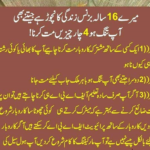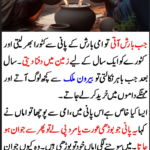Short stories in Urdu boast a venerable tradition and occupy a unique niche within South Asian literature, seamlessly merging cultural subtleties with profound ethical lessons. These narratives, typically succinct and captivating, serve dual purposes: they provide amusement while simultaneously conveying moral guidance and sagacity. For instance, a well-known Urdu tale might illustrate a modest villager who, despite his destitution, exhibits kindness and honesty, ultimately attaining happiness and esteem within his community. Such stories underscore virtues like honesty, compassion, and integrity, mirroring societal values and encouraging readers to emulate these qualities in their own lives. The simplicity and relatability of these tales render them accessible to a broad audience, spanning from children to adults, ensuring that the moral lessons resonate profoundly. Additionally, the opulent language and vivid imagery employed in Urdu short stories infuse an element of aesthetic pleasure, amplifying the impact of the moral teachings. This fusion of cultural narrative and moral instruction not only preserves and disseminates traditional values but also cultivates a sense of collective identity and ethical consciousness among readers. Consequently, Urdu short stories with moral lessons continue to be treasured and celebrated within South Asian literary culture.
Posted inTrending
Short Story In Urdu With Moral


